AESA PROGRAMMES
- Building R&D Infrastructure
- Developing Excellence in Leadership, Training and Science in Africa (DELTAS Africa)
- Human Heredity and Health in Africa (H3Africa)
- Africa’s Scientific Priorities (ASP)
- Innovation & Entrepreneurship
- Grand Challenges Africa
- Grand Challenges Innovation Network
- Rising Research Leaders/Post-Docs
- AESA RISE Postdoctoral Fellowship Programme
- African Postdoctoral Training Initiative (APTI)
- Climate Impact Research Capacity and Leadership Enhancement (CIRCLE)
- Climate Research for Development (CR4D)
- Future Leaders – African Independent Research (FLAIR)
- Critical Gaps In Science
- Clinical Trials Community (CTC)
- Community & Public Engagement
- Mobility Schemes: Africa-India Mobility Fund
- Mobility Schemes: Science and Language Mobility Scheme Africa
- Research Management Programme in Africa (ReMPro Africa)
- Science Communication/Africa Science Desk (ASD)
- Financial Governance: Global Grant Community (GGC)
- AAS Open Research
- CARI Programmes
- Evidence Leaders Africa (ELA)
All Affiliates
AAS Fellows and Affiliates are distinguished researchers who represent the Continent’s talent and promising men and women from across the globe
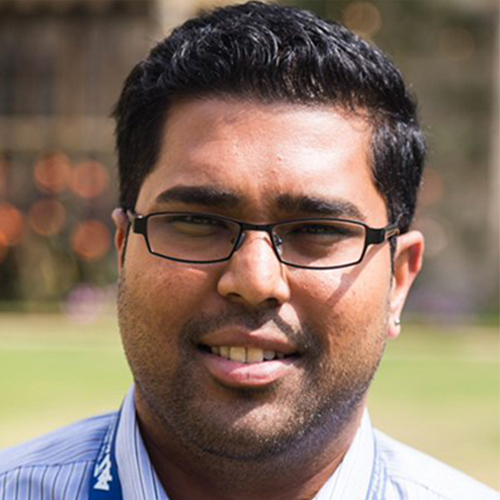
Engineering Technology & Applied Sciences
South Africa
Cohort 2
|
Doorsamy received the Ph.d. Degree in Electrical Engineering from the University of the Witwatersrand in Johannesburg, South Africa in 2015, with his research focusing on inferential diagnostics on electrical machines. In 2011 and 2013, he was awarded the National Research Foundation (NRF) Freestanding and Scarce Skills scholarships, respectively. He is currently a senior lecturer at the University of Johannesburg. His postdoctoral research was in the area of sustainable Decentralised Renewable Energy Systems (DRESs) for rural and remote applications. Dr Doorsamy’s current research, community and government engagements revolve around finding long-term sustainable solutions to the challenges posed by the world energy trilemma - i.e. energy poverty, energy security and environmental sustainability. He has published work on the use of system engineering in developing and implementing sustainable DRESs. Currently, his research focuses on the development of biomimetically intelligent subsystems in stand-alone DRESs to enable more flexible, robust and resilient solutions for off-grid rural application. He is a member of the South African Institute of Electrical Engineers (SAIEE) and the Institute of Electrical and Electronic Engineers (IEEE). |
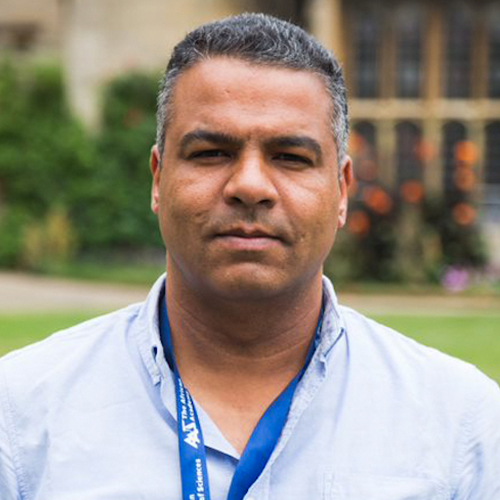
Physical Sciences
Tunisia
Cohort 2
|
Mohamed has an engineer and MSc degrees in Instrumentation from the National Institute of Applied Science and Technology, Tunis. He is graduated from the University Paris-Sud, France, with a docteur in physics in 2012. Since 2012 he is associate professor in the High School of Biomedical Technologies, department of biophysics and medical technology, Univ. Tunis El Manar. He is giving course on biomedical instrumentation, medical imaging technologies and maintenance of medical equipments. |

Physical Sciences
Egypt
Cohort 2
|
Abdel received his B.Sc. and M.Sc. degrees in Physics from Al-Azhar University, Egypt, in 2004 and 2008, respectively, and the Ph.D. degree in Computer and Information Science from Universiti Teknologi PETRONAS, Malaysia, in 2014. He is currently an Assistant Professor at Al-Azhar University and his research interests include the telecommunication, information theory and quantum information. He published 24 papers in a recognized journals and international conferences. |
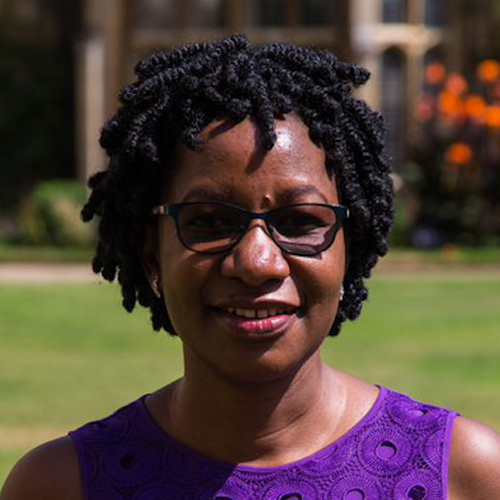
Medical & Health Sciences
Uganda
Cohort 2
|
Dr Mpariwe is a clinical epidemiologist with over ten years’ experience in clinical research. Her research has focused on understanding the possible role of chronic immune-modulating infections (such as worms) on allergic conditions (eczema, asthma) among children and adolescents, in Uganda. |
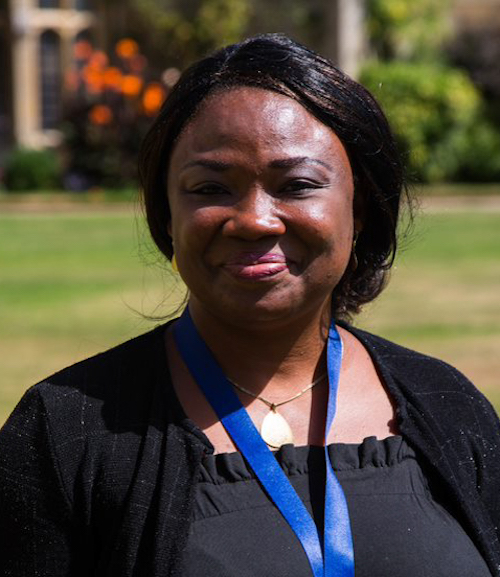
Medical & Health Sciences
Nigeria
Cohort 2
|
Dr Oridupa has a PhD from University of Ibadan, Nigeria in Veterinary Pharmacology, with her research focus on Drug Discovery and Development from African Medicinal plants. Her research entails verification of medicinal claims, toxicological assessment and establishment of empirical basis for the pharmacology of medicinal plants. Dr Oridupa received the Tertiary Education Trust Fund (TETFund) grant for Academic Staff Development (Nigeria) in November 2012 which was utilized for her Post-Doctoral Training at the Cancer Research Laboratory, School of Pharmacy and Biomolecular Sciences, Liverpool John Moores University, United Kingdome (November 2012 – October 2014). |
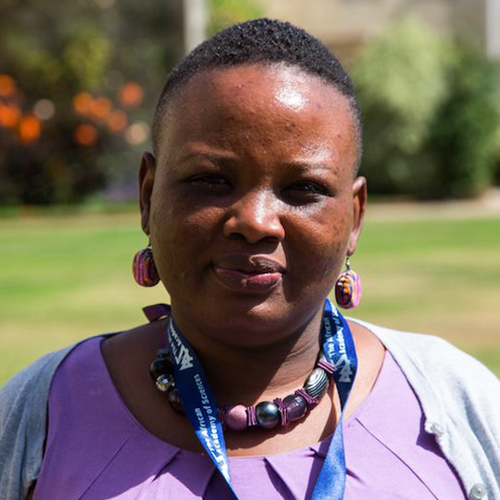
Medical & Health Sciences
Kenya
Cohort 2
|
Ms Kapulu is a post-doctoral research scientist at the KEMRI-Wellcome Trust Research Programme in Kilifi, Kenya. Melissa trained in her home country of Zambia, at the University of Zambia (2004), Lusaka where she obtained her BSc in Biological Sciences with a bias in Molecular Biology and Genetics. During her undergraduate studies, she gained an interest in immunology and further pursued this by obtaining an MSc in Immunology of Infectious Diseases at the London School of Hygiene and Tropical Medicine (2007, University of London, UK). Upon completion, keen on exploring the skills gained, she returned to Zambia where she taught various undergraduate programmes in the Schools of Natural Sciences and Medicine as well as pursuing research interests in understanding of immune responses to especially oral vaccines. In 2009, she followed up her interests in immunology by reading for a PhD at the Jenner Institute (University of Oxford, UK) working on pre-clinical development of malaria transmission-blocking vaccines. In 2013, she moved to Kilifi, Kenya based at the KEMRI-Wellcome Trust to expand her work on malaria with key interest in understanding the epidemiology of malaria transmission from human to vector populations. |
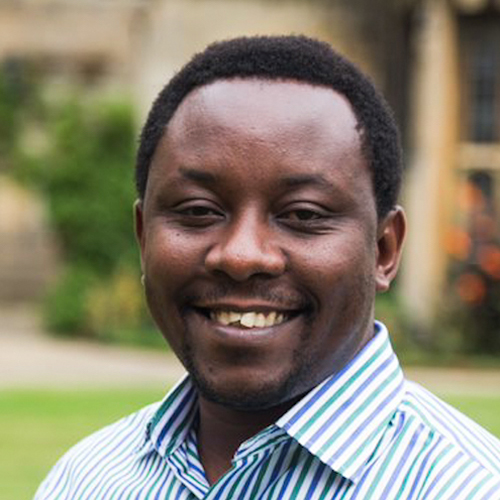
Medical & Health Sciences
Kenya
Cohort 2
|
Mwangi is a Clinical Assistant Professor at the Paul G. Allen School for Global Animal Health, Washington State University, a visiting scientist at the University of Nairobi, and a Wellcome Trust Public Health and Tropical Medicine Fellow at the Kenya Medical Research Institute. He attained his PhD in Infectious Disease Epidemiology from the University of Edinburgh (2012) quantifying the burden due to infectious diseases and the consequences of concurrent co-infections with multiple pathogens. Previously he worked on the molecular diagnosis and spatial epidemiology of African Animal trypanosomiasis at the International Livestock Research Institute (ILRI) in Nairobi, as part of his thesis work for the Masters of Science degree in Genetics and Animal breeding (2008) University of Nairobi and holds a Bachelor’s in Veterinary Medicine and Surgery (2005) from the same University. Currently, Thumbi Mwangi leads a One-Health research group investigating the zoonotic, socio-economic and nutritional pathways that link animal health to human health and welfare. He is actively involved in post-graduate education supervising several Masters and PhD students in local and international universities, and has received several awards including the 2016 Aspen Institute New Voices fellowship, 2016 Kenya’s top 40 under 40 for his contribution towards rabies elimination in Kenya, 2015 Kenya Research Veterinarian of the Year Award, 2015 Outstanding Research Article Award by the International Society for Disease Surveillance among others. |
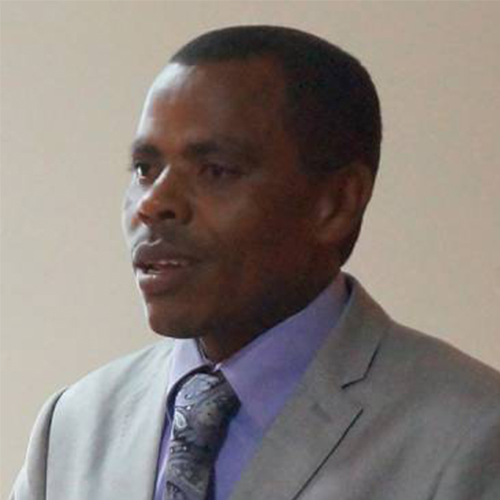
Cameroon
Cohort 2
|
Dr Samje holds a PhD in Biochemistry from the University of Buea, Cameroon. Currently, he is a lecturer of Biochemistry at the Department of Biomedical Sciences of the University of Bamenda and a Researcher at the Pan-African Centre of Excellence for Onchocerciasis Drug Research at the University of Buea. Moses is interested in the discovery and development of drugs and control tools against neglected tropical diseases with a focus on onchocerciasis. He contributed significantly in the development and validation of filariasis drug screening assays which is recognized internationally. Using these assays, he has established the efficacy and safety of some pure compounds against onchocerciasis (river blindness). Dr. Samje has also shown the feasibility of repurposing existing drugs for the treatment of onchocerciasis. As part of a consortium, one of such efficacious repurposed drug is under clinical trials. His contribution to science is published in both renowned national and international journals. |
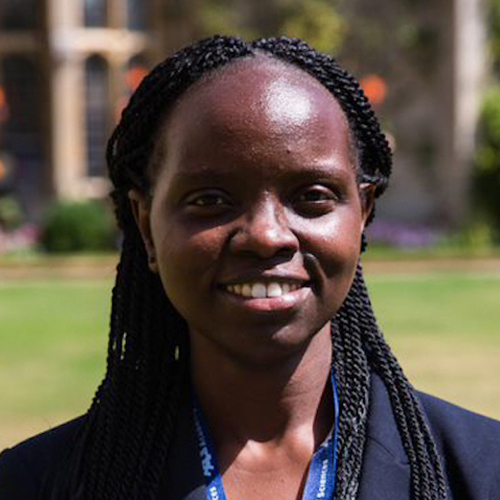
Engineering Technology & Applied Sciences
Kenya
Cohort 2
|
Ms Kemei studied structure-property correlations in frustrated magnetic oxides during her PhD at the University of California, Santa Barbara. Her expertise is in material characterization using techniques such as high-resolution variable-temperature synchrotron x-ray diffraction, magnetometry, and magneto-capacitance measurements. Through understanding the role of structure in determining material properties, one can create functional materials by design. The American Physical Society (APS) recognized Kemei’s PhD work in 2014 through the Richard L. Greene Dissertation Award in Experimental Condensed Matter or Materials Physics. After her graduate studies, Kemei joined the group of Professor Sossina Haile at the California Institute of Technology where she studied the local structure of solid oxide fuel cell materials to understand the role of cation-substitution in enhancing electronic and ionic mobility. She also studied solar fuel generation through the thermochemical process using cation-substituted ceria as a catalyst. In 2015, Kemei joined Intel Corporation as a Module engineer where she is working towards advancing Moore's law. Kemei's passion is enhancing education and science opportunities in Africa, her dream is to contribute to the development of future scientists from Africa. |
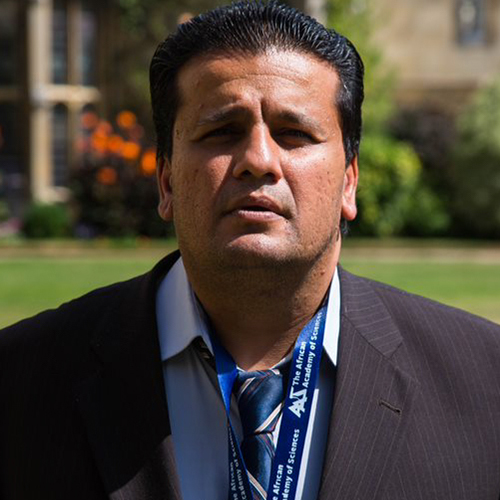
Engineering Technology & Applied Sciences
Tanzania
Cohort 2
|
Sameer is currently an Assistant Professor at the Bahir Dar Energy Centre, Bahir Dar University, Ethiopia. He has served as the Acting Head of Sustainable Energy Science and Engineering Department at the Nelson Mandela African Institution of Science and Technology (NM-AIST) in Arusha, Tanzania. In his tenure at NM-AIST, Dr Hameer was the Principal Investigator for the Erasumus+ project and led the NM-AIST team along with local and international partners that won the grant of 883,000 Euros for three years (2016-2019) for the project: Development of the Harmonized Modular Curriculum for the Smart Grid (DAMOC) . Dr.Hameer holds all his degrees from Georgia Institute of Technology, Atlanta, GA, USA : BSc. (Hons.) Electrical Engineering, MSc. Aerospace Engineering, and PhD. Aerospace Engineering. Dr.Hameer has a substantive number of publications in the area of energy storage, thermal energy storage, and solar thermal energy. |
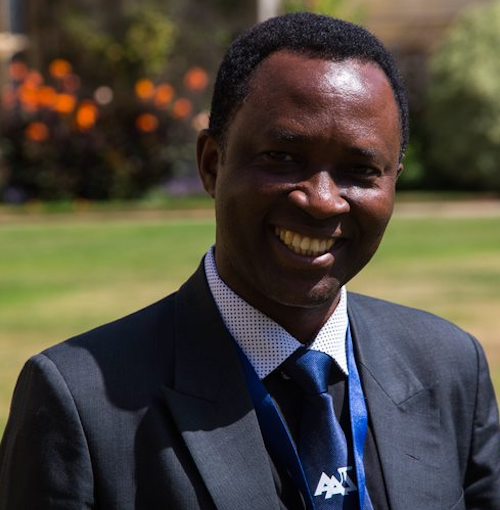
Chemical Sciences
South Africa
Cohort 2
|
Dr Eboka is an emerging young and dynamic researcher, chemical and mechanical engineer with research innovation in the area of Green and Renewable Energy technologies, thermodynamics and internal combustion engines with special interests in biofuels, biomass, biodiesel and environment. His niche area has been carved to reflect Food-Energy-Water-Climate nexus. Dr Eloka-Eboka has a PhD in Mechanical Engineering from the University of KwaZulu-Natal, South Africa, Master of Engineering in Mechanical Engineering with speciality in Energy Studies from the University of Agriculture, Makurdi, and Bachelor degree Honours in Chemical Engineering/Technology from Nnamdi Azikiwe University, Nigeria. He is currently a research fellow at the University of KwaZulu-Natal where he is currently spear-heading research in an emerging research field, Bio-Nanotechnology for engineering and thermal applications and investigative/comparative study of generic biofuels' sustainability and technologies using case studies of the Republic of South Africa at the Green Energy Solution Research Centre of the university. He has developed research proposals to establish engine testing facilities and laboratory for bio-Nanotechnology research and thin film solar cells development which he is developing at the university |
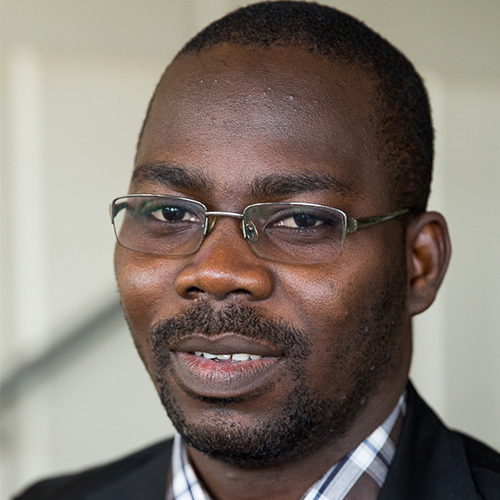
Agricultural & Nutritional Sciences
Benin
Cohort 2
|
Dr Padonou has background in Agronomy & Forestry and Natural Resources Management. He is a lecture at National University of Agriculture in Benin. His research ambition is advocated to give an efficient contribution to combat land degradation and desertification particularly bowalization. Using metadata on environment and vegetation combined with GIS and remote sensing, he is expecting to elucidate possible drivers, indicators and impact of bowalization at regional scale (West Africa). Up to now, he has published 17 scientific papers in recognized high-qualified journals and participated to more than 7 international conferences. He has been involved in UNDESERT project (EU FP7 243906), QualiTree (Danida research and development project) and got 5 grants & 3 awards. Dr. Elie Padonou is affiliated to (1) Intergovernmental Science-Policy Platform on Biodiversity and Ecosystem Services (IPBES), (2) Restoration Ecology, (3) Laboratory of Applied Ecology and (4)CAPES NGO in Benin. |
Pagination

Elected: